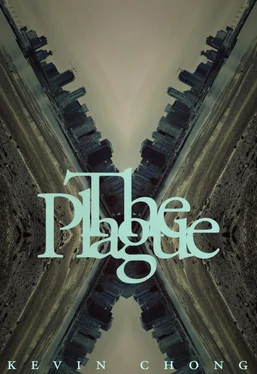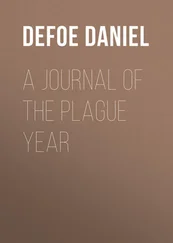She had known she couldn’t maintain her roleplay for long. The more she knew about Yuko, the more difficult it had become to impersonate her. After Gudrun’s last questions, she’d instantly imagined a different life for this dead Japanese woman, a life that she had finally begun to control. No more.
Only once Raymond Siddhu was buzzed into the building did he get a key fob from GSSP’s managing editor, Harper, a woman who looked exactly twenty-three years old. “You have your own laptop, right?” she asked. “Our IT guys need to do some stuff to it first. They work off-site and they look like lizards. He hides it well, but Elliot’s obsessed with security.” The space felt more like an oversized home office than he was expecting it to be.
Siddhu had not yet told his wife that he’d quit the newspaper. He didn’t want to tell her that he’d left without a severance package. His boss had shuffled some papers and said, “I know it sucks here, everyone’s dealing with something. I didn’t realize that ‘legacy’ could be a verb until it was applied to my industry. Don’t you want your name on the front page when we run our final edition? Besides, this whole situation has given us a reason to be. Your stories have never been read this much. And now you decide to find work in communications?”
“I’ve taken a reporting job elsewhere,” Siddhu told him.
The editor’s phone started to buzz; he looked at it and then pushed it away from him like an emptied dinner plate. Siddhu hadn’t liked Curt when he came in two years earlier. He was too managerial and threw around too many buzzwords. But he had taken part in pub trivia nights. He listened to The National, loud, in his corner office on days when he had to deliver termination notices. He knew the names of his workers’ spouses and sometimes their children. He’d gained twenty pounds since he started the job; though he kept a treadmill in his corner office, he hung dry-cleaning from the handles. “I’m not going to ask you where,” he told Siddhu. “What’s gotten into you? Right, you’re feeling stuff. Have you talked to Uma about your decision?”
Last night, he and Uma had used Skype to attempt video sex fifteen minutes after Siddhu’s sons bawled at the sight of their father onscreen. They looked around for him and then wailed in their room until they fell asleep. He could not stop worrying that they would forget who he was. As a result, Uma accused him of looking distracted during their virtual intercourse and ended their call by throwing her smartphone across the room.
“I won’t change my mind,” he told his editor. In the past week, he had become the paper’s disease reporter. At every turn, Horne-Bough’s website had beaten them. It was not about intrepid reporting, Siddhu convinced himself, it was Horne-Bough’s personality creating a new business model. Maybe it wasn’t sustainable or lucrative, perhaps it was something quixotic, but GSSP could still produce the definitive record of this epidemic.
“If you just wait until the end of the next fiscal quarter, there will be another round of cost-cutting,” the editor-in-chief told him. “I don’t need to let you go empty-handed.”
Siddhu shook his head. He had a new job. He offered to give them the next two weeks, but he wanted to leave today. He left escorted by security.
At GSSP, there was a story meeting scheduled at a table crowded with takeout boxes and dirty Ikea silverware. This seemed to be the only raised flat surface in the office. No one except Harper, who was preoccupied by a malfunctioning router, was in attendance for the official 11:00 a.m. meeting time. Siddhu straightened up the table and admired the view of the city’s railyard in the distance.
“You can see it even better from our rooftop,” Horne-Bough told him when he eventually arrived, throwing his winter coat onto a chair. “If you don’t see us here, you can find us upstairs. We’ve got a gas grill and lawn furniture set up.” He was accompanied by the website’s other two reporters, including the former intern who had written better, detailed, and timelier versions of Siddhu’s own stories that week. The young media mogul looked at the table. “Thanks for cleaning up.”
The meeting was brief and uneventful. Each reporter spoke about the stories they were pursuing and how they were spending their days. The actual writing of the pieces, Siddhu seemed to understand, was done in coffee shops. When it was Siddhu’s turn to speak, he was relieved that neither of his new co-workers had wanted to cover the anti-immigration and anti-racism rallies being staged concurrently at the old Art Gallery.
“After you get your security software installed, we were hoping you would take that story,” Horne-Bough said, eyes gleaming. It occurred to Siddhu that there was likely a vaporizer on the rooftop as well. “You see, we’ve been spreading ourselves too thin. And I need help to break a big story on a, um, prominent figure.”
Siddhu leaned toward the table. “I want in on this.”
Horne-Bough centred his index finger on his lips. “Who knows if we’re being bugged? That’s why I prefer the rooftop.” He and the former intern, who had been given the original tip, had been sworn to confidentiality. “Negotiations are ongoing—we might need to crowdfund. Thankfully, we’ll be bringing in someone who’s good at passing around the hat.”
“You’re not going to pay a source, are you?” Siddhu asked.
“Not if we don’t have to,” Horne-Bough replied. He noted Siddhu’s dismay and added, “We are attempting to do things differently. If it burns us in the ass, you can blame the no-longer-rich white kid.”
The meeting was adjourned seventeen minutes after it commenced. Siddhu puttered around before asking Harper, on the phone with the company’s internet provider, about his payment information. The managing editor, once she was placed on hold by customer service, produced a wad of hundreds and asked him if he needed some cash to “blow off steam.” Siddhu hadn’t even bothered to negotiate a salary or his potential ownership share—he didn’t even know if he had dental coverage. At some point, if this all fell apart, he told himself he’d go into business with his brother Bobby, a contractor who tore down perfectly good houses to build new ones for a profit.
Siddhu had more than thirty minutes to make it to the rally, so to kill some time he got a coffee. Thankfully, it was still considered an essential food item by authorities. He stood in line at the business—coffee shop sounded too homely, café too romantic—that Bernard Rieux had introduced him to; it was the closest to his new office. He took note of the tables and outlets; this might be his new workplace. He looked over his interview notes with the anti-racism protest organizer. The organization for “European-Canadian rights” had sent him a press release that advocated an immediate deportation of all residents of Canada who’d been born outside the country and were of non-European descent.
As he ordered his Americano, he caught sight of Dr Rieux wearing a neon-orange cycling jacket. On their first meeting, Rieux had not smiled once. Today, his teeth were movie-star white and he seemed friendlier, more relaxed.
“You got me hooked on this place,” Siddhu told him.
“As I am with your news coverage,” Rieux answered brightly. “I read your farewell column. I’m sad to hear you’ll be leaving journalism.”
Siddhu explained that he’d found a new job. He wanted to write better stories, more timely stories. “And my old workplace had become a graveyard,” he told the physician. He lifted his face mask to take his first sip of the Americano. “I wanted something novel.”
Читать дальше












